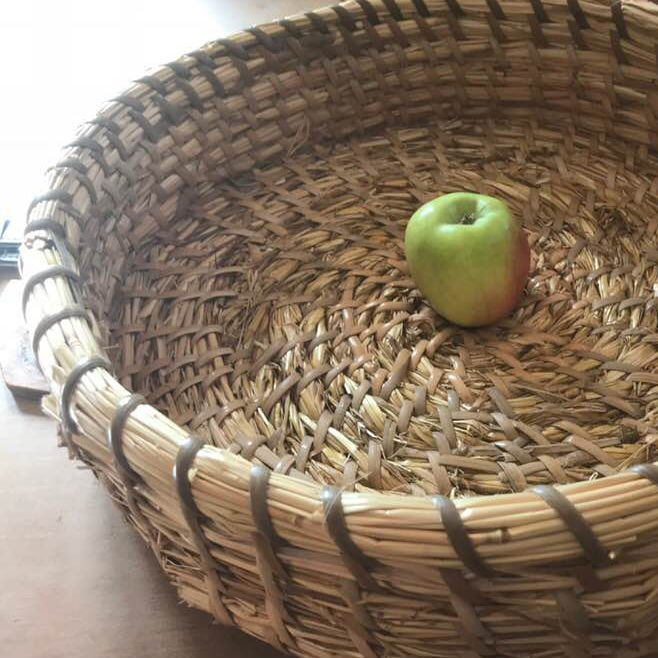Recently, we joined the Heritage Crafts Association (HCA). Theirs is an excellent endeavour, working as an advocacy body on behalf of traditional crafts around the UK. As part of their work, they have established a continually updated directory of heritage craft practitioners, or makers, sharing their individual profiles and skills online.
Interestingly, the HCA are able to identify both endangered and critically endangered crafts, those with so few practitioners that are at risk of being lost as a skill forever. When we first read their Red List of endangered crafts, we learned that, as part of our Family Foraging Kitchen courses, we teach a number of heritage crafts at risk of being lost.
For our team and, in particular, course tutor Robbie Ryder, this was bittersweet news. While it is wonderful to be preserving such fascinating skills, like skep weaving and hazel hurdle making, it is also a shame that they are not more widely known, certainly to an extent that prevents them from becoming potentially lost knowledge.
Straw Skep Weaving
A skep is a traditional straw, wicker, or reed bee hive. Typically, they have a single entrance that leads to an empty internal space, encouraging bees to establish their own honeycomb within the secure and warm structure. Historically, they have been rather rudimentary in design, formed as, essentially, an open-ended up-turned basket. Over the years, however, they became slightly more complex, with caps and ekes that allowed for an easier extraction of the honey.
This craft, performed by skeppers, is now endangered. At a time when the health of our bees has been called into question, it is essential that we support hives in any way we can, not only for the sake of their continued survival but for our own crops too. We believe that, by continuing to teach this fantastic craft, we can support the preservation of a traditional skill and the understanding of bee importance.
Hurdle Making
This rather physically demanding skill takes hazel (and sometimes willow) and weaves it together to create hurdles. They have been employed in various ways, from farms to warzones, for hundreds of years, acting as dividers, supports, gates, and tracks, most often being used to contain animals, such as sheep.
In the last century, hurdles have been largely replaced with steel alternatives, not only depriving the landscape of beautifully made and sustainable hurdles but pushing the heritage skill into an endangered classification. Fortunately, there are a group of dedicated practitioners (like us!) who work with the HCA to help continue this skill and hazel hurdles present in our society.
FAMILY FORAGING KITCHEN
To learn more about these skills, the importance of their preservation, or to book a traditional skill course of your own, visit our website! Additionally, if you have any questions about our courses, you can speak directly to our heritage craft tutor, Robbie, by emailing robbie@familyforagingkitchen.co.uk
